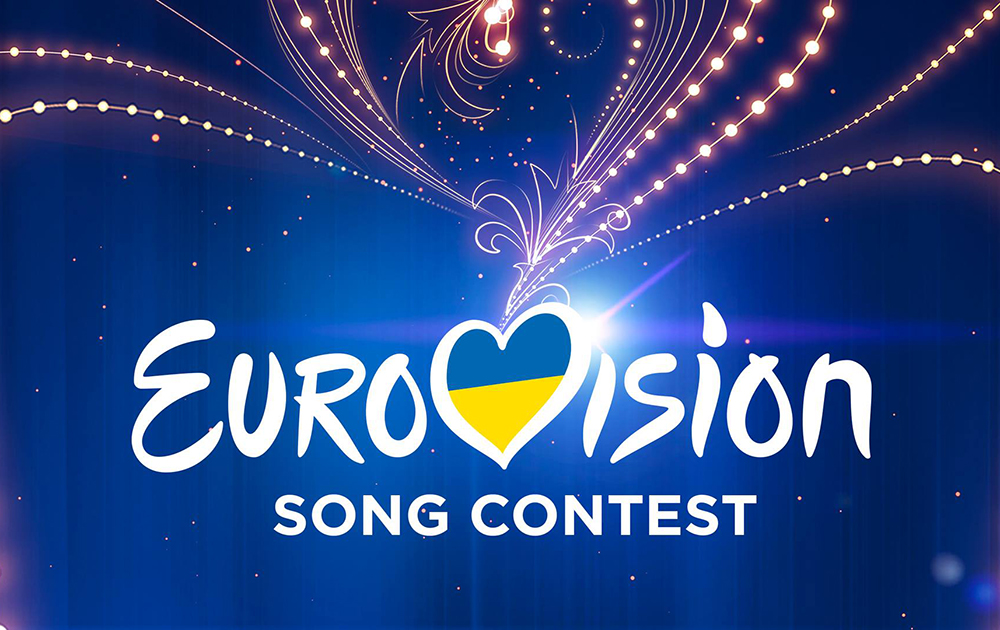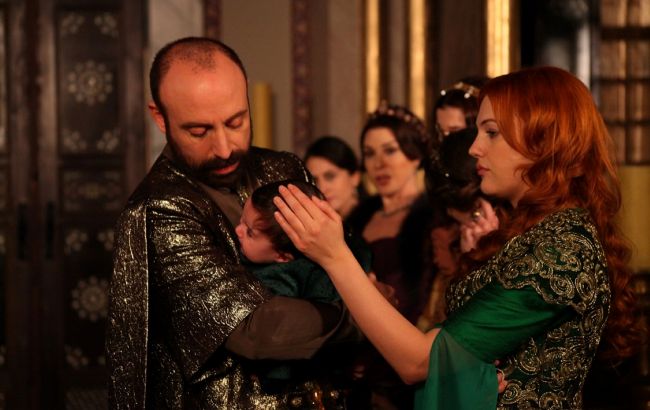Eurovision Winners - List of Countries and Artists Who Have Won the Contest.


The Eurovision Song Contest has long been an occasion to see new faces on stage. Every year, new stars appear on the stage of the contest. Many winners, like participants of the contest, gain their share of popularity.
If we track who has won Eurovision over the years, we can see how public tastes in music have changed. Of course, the winners of Eurovision have not always been obvious and accepted, however, the winners over all the years truly differ in diversity. Also, the Eurovision winners often reflected certain situations in Europe (political and social). Therefore, this contest has long gone beyond being simply a 'song contest'.
Eurovision Winners
It is worth starting by mentioning that the list of Eurovision winners is extraordinarily large and diverse. Since Eurovision's list of winners dates back to the 90s, this contest has indeed existed for a very long Time. Countries winning Eurovision often repeat, which is also significant: for instance, Ukraine has received first place several times.
However, before talking about all the Eurovision winners, it is important to say a few words about the contest itself. 'Eurovision' is not just a music contest; it is a cultural phenomenon that unites millions of people across Europe and far beyond its borders every year. Since 1956, this contest has provided a platform for musical talents from various countries, where each participant gets a chance to showcase their national identity through music. On the Eurovision stage, both already famous stars and newcomers who were just starting their journey in the show business world have performed. Each year, the participating countries choose their representatives through national selections or by internal decisions of broadcasting companies. The contest takes place in three stages: two semifinals and a grand final, during which the winner is determined based on the votes of the jury and viewers. This list of winners from 2000 to 2009 vividly demonstrates how Europe's musical tastes have changed and which songs resonated with listeners' hearts.
The main idea of the contest is unity through music, and for decades, it has remained popular among various generations. Voting is divided between a professional jury and the audience, and the winner gets the right to hold the next contest in their country. The contest often changes trends, influences pop culture, and even politics.
2000 - Denmark - Olsen Brothers, 'Fly on the Wings of Love'
In 2000, the victory was won by the duo from Denmark - Olsen Brothers with the tender and melodic composition 'Fly on the Wings of Love'. Their song mesmerized the audience with its sincerity, warmth, and simple yet touching lyrics. Despite not being very young artists, their charisma and experience worked wonders - viewers all over the world cast their votes for them. The victory of the Olsen Brothers was an example that true music knows no age restrictions.
2001 - Estonia - Tanel Padar, Dave Benton and 2XL, 'Everybody'
The following year, Estonia achieved victory for the first time in history. Tanel Padar, Dave Benton, and the band 2XL presented the song 'Everybody' - a dynamic, upbeat composition that literally made Europe dance. This victory became a symbol of openness in the European music space for Baltic countries and new independent states. Moreover, Dave Benton became the first black performer to win Eurovision - an event that was both historical and significant.
2002 - Latvia - Marie N, 'I Wanna'
Latvia became the next Baltic country to win, just a year after Estonia. Marie N performed the song 'I Wanna' with a vibrant dance show that was memorable for its spectacular costume changes right on stage. Her performance was an example of how a combination of vocal talent, choreography, and unexpected visual elements can secure victory in such a large-scale competition. Her act was extremely charismatic, and the song was easily memorable.
2003 - Turkey - Sertab Erener, 'Everyway That I Can'
In 2003, Eurovision brought victory to Turkey, represented by Sertab Erener with the song 'Everyway That I Can'. This track was a real breakthrough - it not only became memorable for its melody but also set a new musical standard by combining elements of Turkish folklore with European pop aesthetics. This was a bold experiment in which eastern exoticism and western dynamics merged into harmonious unity. It was this creative courage and unconventional approach that brought instant recognition to the song.
Sertab appeared on stage with a confidence and charisma that was hard to miss. Her performance was not just a musical number - it was an emotional story where every movement, every glance added to the meaning of the song. Thanks to her passionate delivery, audiences all over Europe felt not only the music but also the deep emotions she invested in every word. This victory became a breakthrough for Turkey, which had long remained in the shadows among other European contestants.
In addition to artistic success, Erener's triumph held cultural significance: Turkey first proved that its authentic culture could be appealing to a wide international audience. She broke stereotypes, showing that Eastern motifs could naturally fit into the foundation of modern European music. Following this victory, Turkey began to participate more actively in musical exchanges and festivals, and Sertab became a true musical ambassador for the country. Her performance became a symbol of a new approach to participating in Eurovision - sincere, emotional, and rooted in national traditions.
2004 - Ukraine - Ruslana, 'Wild Dances'
The year 2004 marked a true breakthrough for Ukraine on the international music stage - Ruslana won Eurovision with a vivid, explosive composition 'Wild Dances'. This was not just a song but a true manifesto of Ukrainian culture presented in a modern style. Her performance impressed audiences throughout Europe - ethnic motifs, a strong visual component, and choreography reminiscent of Hutsul dances created an unforgettable atmosphere.
Ruslana took the stage in the guise of a warrior amazon, symbolizing strength, determination, and Ukrainian spirit. Her dynamic performance, full of energy and charisma, literally captivated the audience. She was not just singing - she was leading, exuding confidence and emotional strength. Her song became an anthem of freedom and self-expression, and a symbol that Ukrainian culture can be modern, competitive, and emotionally rich.
This victory had not only musical significance but also a strategic importance for the country - Ruslana's participation marked a new perception of Ukraine in Europe. Thanks to Eurovision, the world saw a different Ukraine - youthful, energetic, open to experiments, yet deeply national. In 2005, Ukraine hosted Eurovision for the first time, which became an important cultural event. Ruslana long remained in memory as a symbol of musical independence and driving force that expanded the horizons of the contest.
2005 - Greece - Helena Paparizou, 'My Number One'
In 2005, Greece triumphed at Eurovision - the charismatic Helena Paparizou won with the composition 'My Number One'. Her performance was a prime example of the elegant fusion of pop culture and Greek ethnic elements. The song immediately resonated in the hearts of viewers, thanks to the harmonious balance of rhythm, emotional depth, and professional execution. This was a striking example of how national musical heritage can organically weave into modern show business.
Helena didn't just perform the song - she created a vivid stage picture that was hard to forget. Her energy, vocal mastery, and expressive choreography made the performance one of the most spectacular in the history of the contest. She managed to maintain the audience's attention with every appearance on screen, underpinning the song's sound with vivid facial expressions, movements, and sincerity in her performance.
After her triumph at Eurovision, Paparizou became a national hero and a true star on the international stage. She brought Greece its first historical victory, which was perceived in the country as an event of national importance. Her success demonstrated that the Greek scene is capable of creating competitive products for the entire world. In music circles across Europe, Paparizou's victory became a confirmation that strong vocals, a thoughtfully crafted image, and sincere emotion is a foolproof formula for Eurovision.
2006 - Finland - Lordi, 'Hard Rock Hallelujah'
The year 2006 was a true shock for many - Finland won with the heavy metal band Lordi and the song 'Hard Rock Hallelujah'. For the first time in the history of the contest, heavy rock won, shattering all stereotypes about 'Eurovision' as a pop festival. Lordi took the stage in monster costumes, but behind their masks was high-quality music, charisma, and a clear message. Their victory opened doors for new genres and proved that Europe is ready for musical diversity.
2007 - Serbia - Marija Šerifović, 'Molitva'
In 2007, Serbia triumphed - a country that had just started its independent path in the contest. Marija Šerifović performed the deep, emotional song 'Molitva' in Serbian. It was a poignant ballad without fireworks, but with genuine feelings and powerful vocals. Her performance proved that sometimes, one voice on stage is enough to touch millions. Serbia participated as a separate state for the first time - and immediately won.
2008 - Russia - Dima Bilan, 'Believe'
The year 2008 brought victory to Russia. Dima Bilan performed the composition 'Believe' - an emotional, inspiring song accompanied by an impressive performance featuring figure skater Evgeni Plushenko and violinist Edwin Marton. This performance exemplified how to turn a song into a whole show. 'Believe' skillfully combined musical dramaturgy, artistry, and technical mastery. Bilan represented Russia for the second time, and this time - with a winning result.
2009 - Norway - Alexander Rybak, 'Fairytale'
The year 2009 is remembered for the victory of Alexander Rybak from Norway, who performed the song 'Fairytale'. The young artist, who wrote both the music and the lyrics himself, captivated the audience with a charming melody, violin playing, and a sincere smile. His act was simple yet genuine. Rybak set a record for the highest number of points, which stood for many years. 'Fairytale' became a true fairy tale - not just by name but by the emotions it brought to listeners across Europe.
2010 - Germany - Lena Meyer-Landrut, 'Satellite'
In 2010, Germany confidently reclaimed its spot among Eurovision favorites. The country's representative, Lena Meyer-Landrut, then just a young girl, charmed viewers with her spontaneity and the song 'Satellite'. Her performance was very sincere and unexpectedly 'un-staged', which became a true breath of fresh air for the contest. Lena won due to her blend of modesty, energy, and of course, a very memorable song. Her victory was the first for unified Germany since 1982.
2011 - Azerbaijan - Ell/Nikki, 'Running Scared'
The following year, Azerbaijan won for the first time in history. The duo Ell and Nikki performed the emotional pop ballad 'Running Scared', which, though not impressing many critics, gathered the most votes in the final. The victory was very symbolic - it established new countries on the Eurovision map as serious players. Azerbaijan invested heavily in participation in the contest, and their first place was a logical conclusion to years of strategy.
2012 - Sweden - Loreen, 'Euphoria'
The year 2012 was marked by the triumph of Loreen with the song 'Euphoria' - one of the most successful songs in contest history. Her performance was aesthetically minimalist but extraordinarily emotional, with striking choreography. The composition instantly became a hit in European charts, and Loreen herself became an Eurovision icon. Loreen's performance set a new standard for contestants: professional staging, strong vocal delivery, and complete emotional commitment.
2013 - Denmark - Emmelie de Forest, 'Only Teardrops'
Denmark's victory in 2013 was a return to traditional European pop. Emmelie de Forest with folk-infused notes in 'Only Teardrops' and flute accompaniment created a fairy-tale atmosphere. The composition was light, melodic, and soulful - just what was needed to win the contest. Her sincerity and natural stage presence captured Europe.
2014 - Austria - Conchita Wurst, 'Rise Like a Phoenix'
This year was memorable not only for the music but for its powerful social message. Conchita Wurst from Austria captivated viewers with the James Bond-style song 'Rise Like a Phoenix'. But more than that - with her personality. The image of a bearded woman became a symbol of tolerance, acceptance, and the freedom to be oneself. Her performance sparked much discussion, but Conchita's victory was historic - both for the contest and for European society as a whole.
2015 - Sweden - Mons Selmerlöw, 'Heroes'
Sweden again proved that it knows how to create musical hits. Mons Selmerlöw with the song 'Heroes' not only won but surprised audiences with a high-tech staging. Animation, interaction with virtual stage elements - all of this was a new word in the visual presentation of contest performances. The song quickly became popular in Europe, and Mons became one of the most well-known recent winners.
2016 - Ukraine - Jamala, '1944'
Ukraine triumphed for the second time in 2016 thanks to Jamala's extraordinarily powerful performance with the song '1944'. The composition, dedicated to the tragedy of the Crimean Tatar people, was deeply personal and politically charged. It was one of the most emotional numbers in Eurovision history. Jamala was able to convey her pain and strength through music, making her victory not only musical but also moral.
2017 - Portugal - Salvador Sobral, 'Amar Pelos Dois'
Portugal's victory in 2017 was a complete surprise. At a time when Eurovision is often associated with showiness and light effects, Salvador Sobral took the stage without unnecessary pomp, with an acoustic lyrical composition 'Amar Pelos Dois', written by his sister. His performance served as a reminder that at the heart of the contest is music and emotions. True musical purity combined with the performer's charisma earned him a well-deserved victory.
2018 - Israel - Netta, 'Toy'
The bright and flamboyant Netta from Israel in 2018 brought a new breath to the contest. Her song 'Toy' was a feminist anthem that combined humor, strength, and creativity. Netta's performance was a true show using loopers, a unique vocal style, and vivid images. She not only triumphed but also left a mark in the culture of the contest. Her victory was a victory of unconventional solutions and feminine power.
2019 - Netherlands - Duncan Laurence, 'Arcade'
After decades without victories, the Netherlands returned to first place thanks to Duncan Laurence's tender and moving performance with the song 'Arcade'. His composition was devoid of any pomp or ostentation - just voice, piano, and a deep, personal love and loss story. The song gradually became a hit far beyond Eurovision - it was used on TikTok, entered global Spotify charts, and even made its way into American rankings. Duncan proved that sincerity and quality music can break through any noise.
2020 - Contest Cancelled Due to the COVID-19 Pandemic
The year 2020 was exceptional in Eurovision's history - for the first time in over 60 years, the contest did not take place. The reason was the rapid spread of the coronavirus worldwide. Organizers decided to not risk the health of participants, viewers, and staff. Instead of the main show, a special TV concert 'Europe: Shine a Light' was held, which united all the performers who were supposed to perform that year, without competition elements. Although there was no winner, that evening was remembered for its warmth, support, and hope in difficult times.
2021 - Italy - Måneskin, 'Zitti e buoni'
After the pause in 2020, Eurovision returned with a loud rock and roll chord. The victory went to the Italian band Måneskin with the song 'Zitti e buoni'. Their performance was an explosion of energy that contrasted with more traditional numbers. The band combined classic rock with modern style, charisma, and uncompromising attitude. Their victory was symbolic - it revived interest in rock music among youth and even brought the band world popularity: Måneskin later performed in the USA, the UK, and other countries on major stages.
2022 - Ukraine - Kalush Orchestra, 'Stefania'
In 2022, Ukraine once again took victory, this time under the conditions of a full-scale war. Kalush Orchestra performed the song 'Stefania' - a mix of folk, hip-hop, and modern sound. The song, written as a tribute to a mother, gained new, powerful meaning in wartime. It became an anthem of resilience, pain, and hope. Ukraine received a record number of votes from viewers, and the Kalush Orchestra's performance reached the whole world. It was not just a musical number - it was the voice of a nation fighting for freedom. After the contest, the band donated the trophy to a charity auction to support the Armed Forces of Ukraine.
2023 - Sweden - Loreen, 'Tattoo'
Again, there was Loreen's triumph - this time with the song 'Tattoo', which earned her a second victory at Eurovision, making her the first woman in the history of the contest to win twice. Her performance was technically complex, featuring visually powerful decorations resembling sand dunes. Emotional delivery, strong vocals, and modern sound created an effect of a true show. 'Tattoo' quickly entered charts in various countries, and Sweden equalled Ireland in the number of victories - seven each. This performance solidified Sweden's position as a leader on the European music map.
2024 - Switzerland - Nemo, 'The Code'
The latest victory in the contest belongs to Switzerland, and it was a true surprise. Nemo - a non-binary artist, performed the song 'The Code', which combined classical orchestral elements, modern electronics, and rap. The composition was complex in structure but incredibly strong in content, telling a story about self-discovery, acceptance of one's identity, and the struggle to be heard. Nemo became the first Eurovision winner with a non-binary identity, marking an important milestone in the history of the contest, which has always supported diversity. Their victory is another confirmation that Eurovision is not just a music contest, but a space where one can be oneself, talk about important issues, and change the world through music.
Read also
- Gangster Movies - The Best Films About the Lives of Criminal Authorities
- Fast and Furious Actors - Main Cast and Most Famous Roles in the Movie
- Artem Pivovarov showed his childhood photos
- Vlad Shevchenko talked about his intimate life during his wife's pregnancy
- Magnificent Century: Roksolana — actors, roles, and biographies of the stars of the series
- Light Movie for the Evening - a Selection of the Best Films for Enjoyable Viewing










